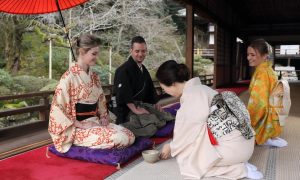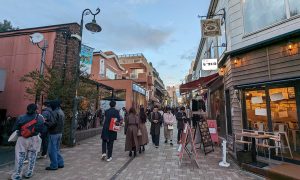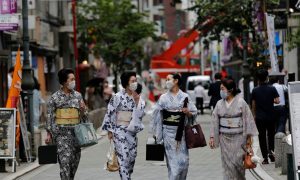As a country that ranks high in terms of global quality of life and cultural attractiveness, Japan is becoming an increasingly popular destination forimmigrantsof the target place. However, theImmigration to JapanAfter, the cost of living is an important aspect that many planners need to understand in depth. Factors such as housing, healthcare, education and daily expenses are not only related to budgeting arrangements, but also have a direct impact on the quality of life after immigration. This article will analyze in detailCost of living for immigrants in Japan, a practical reference for immigrants.
I. Housing costs
1. rent an apartment
The cost of housing is one of the largest expenses in the lives of migrants in Japan. There are significant differences between cities:
- Tokyo, OsakaMetropolitan areas such as: a one-bedroom apartment costs between 80,000 and 120,000 yen (about $700-$1,000) per month, with more expensive units in good locations or larger sizes.
- Local cities and towns: Rents are significantly lower, typically 30,000 to 50,000 yen (about $200-$400) for a one-bedroom apartment.
In addition, a deposit (usually 1-2 months' rent), a gift money (1 month's rent), and an agent's fee are required to rent an apartment, and these upfront costs can amount to hundreds of thousands of yen.
2. buy a house
Buying a property is an option if you plan to stay for a long time. Again, prices vary by region:
- The average price of an apartment in Tokyo is about 1 million yen (about $7,000) per square meter.
- Prices are lower in local cities or villages, and some areas even offer subsidies to encourage foreigners to buy homes.
Note that purchasing a home in Japan does not automatically qualify you for an immigrant visa, and is only one way to invest for long-term living.
II. Medical costs
1. medical insurance
Japan's healthcare system is known for its high quality and efficiency, and the cost of medical care is relatively reasonable.Immigration to JapanThe latter are subject to National Health Insurance (NHI) or Social Health Insurance (SHI), which is usually shared between the employer and the individual:
- premiums: Typically 5%-10% of annual income, with the exact amount varying by income and residence.
- reimbursement rate30% for medical expenses, with additional subsidies for low-income or high-cost situations.
2. Daily medical expenses
The cost of medical treatment for common illnesses is about 5,000 yen (about $35), and hospitalization costs for serious illnesses are usually manageable at tens of thousands of yen with insurance coverage. Overall, the cost of medical care in Japan is less of a burden for middle-income families, but the uninsured are responsible for high costs.
III. Cost of education
1. public school
Public education in Japan is relatively friendly to immigrant families:
- Elementary and junior high school tuition is completely free, but there are additional costs such as meals and school supplies, which range from about 5,000 to 10,000 yen (about $35-70 USD) per month.
- In the case of senior high school, a portion of the tuition fee is payable, but families with incomes below a certain threshold may apply for a waiver.
2. international school
Many immigrant families choose international schools for language or cultural needs:
- International school tuition is expensive, usually ranging from 2 to 3 million yen (about $14,000 to $20,000) per year.
- There are also additional expenses such as enrollment fees and school bus fees that need to be budgeted for in advance.
IV. Daily expenses
1. Food and Diet
Food in Japan is of high quality and affordable, and daily expenses depend on lifestyle:
- Cooking at home: Monthly grocery expenses range from 30,000 to 50,000 yen (about $200-$400).
- eating out: Fast food or light meals cost about 500-1,000 yen (about 3.5-7 dollars) per meal, and thousands of yen or more in fine dining restaurants.
2. Transportation costs
- mass transit: Living in a big city, monthly commuting costs about 5,000 to 20,000 yen (about $35-140).
- private car: The cost of owning a vehicle is high, including fuel, insurance, parking fees and annual taxes, which can cost about 30,000 to 50,000 yen (about $200-$400) per month.
3. water, electricity, gas and electricity
Utility rates in Japan vary depending on the season and the amount of usage:
- The average monthly cost of water, electricity and gas is 15,000 to 20,000 yen (about $100-140 USD).
- Heating in the winter and air conditioning use in the summer may result in increased costs.
4. Communications & Entertainment
- Cell phone packages cost about 3,000 to 7,000 yen per month (about $20-$50).
- Entertainment expenses (e.g., movies, travel) range from 10,000 to 20,000 yen (about $70-140) per month, depending on individual habits.
V. General overview of the cost of living
For a family of three, the average monthly expenses for living in Tokyo are roughly as follows:

| sports event | Cost (yen) | Costs (United States dollars) |
|---|---|---|
| Housing (rent) | 120,000 | 1000 |
| foodstuffs | 50,000 | 350 |
| water, electricity, gas and electricity | 20,000 | 140 |
| mass transit | 20,000 | 140 |
| Education (public schools) | 10,000 | 70 |
| Communications & Entertainment | 20,000 | 140 |
| add up the total | 240,000 | 1840 |
The cost of living in local cities, in turn, can be reduced 30%-50% especially in the areas of housing and transportation.

VI. Conclusion
Immigration to JapanThe cost of living is affected by where you live, your lifestyle and the size of your family. When making plans to emigrate, a thorough understanding and planning of housing, medical care, education and daily expenses are key to achieving a high quality of life. By budgeting wisely and adapting to Japanese spending habits, immigrants can enjoy a high quality of life in a country of opportunity.






